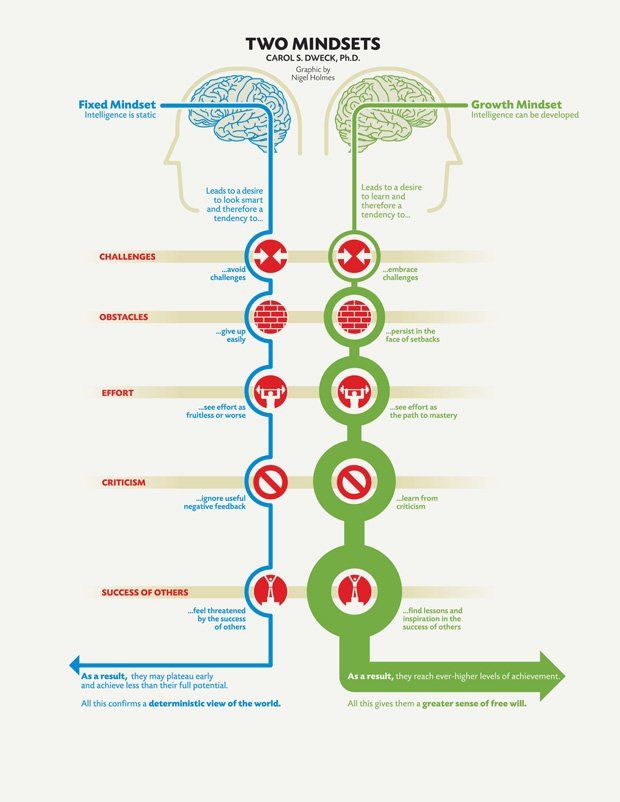How to Use Your Mindset to Make Change
Ever start something new and become overwhelmed by how difficult it is to maintain? We all have. Adopting the right mindset is key to overcoming the many challenges we face when it comes to behavior change. Here's how to replace unhelpful thinking with an empowering mindset.

When I was in high school, I was not athletically skilled. Each year, I would dread the gym class end-of-year test of running a mile. I hated running, mostly because it was uncomfortable, and I became scared when my heart would pound out of my chest. I would often tell myself, "I can't even run for a minute straight, and there's no way I can run for 10 minutes without stopping." So I would allow myself to fail.
Fast forward two decades later, and I proudly have 6 marathons under my belt and have logged countless minutes of running. What changed? My mindset.
I didn't become a running fanatic overnight, but I did adopt a new way to think about the challenges I faced with it. I knew that I could start by running for a few minutes and lengthen the time each time I ran. Sometimes I still felt defeated, but over time, five miles felt as easy as running one mile, half marathons became realistically fun and the appeal of running 26.2 miles became a challenge that inspired me because I knew that I could do it.
I learned how to embrace a "Growth Mindset" instead of having a "Fixed Mindset." The major difference between the two---a growth mindset looks at difficult challenges and views them from behind the lenses of a learning experiment. This specific action did not work, so this new action will be tried next. A fixed mindset approaches failure with a perspective that this specific action did not work, so no other action will be tried. End of story. Failure.
Types of unhelpful mindsets and how to shift your perspective to achieve your goals:
All or Nothing Thinking: This fixed mindset focuses on the absolutes of "never" and failure. For example, "I messed up with my diet today, so I am going to keep eating junk food all week and restart on Monday." Then Monday comes, and the same statement is said so that it is now rephrased into, "I can never stick to a healthy eating plan."
The solution : "I messed up with my diet today, but I can make better choices starting right now."
Dos
- Recognize strengths
- Understand that setbacks happen
- Find the positive in situations
Don'ts
- Focus on faults
- Dwell on self-defeating thoughts
- Use unconditional terms such as "never" or "nothing"
Should Statements: Our words are powerful, especially how we talk to ourselves. "I should lose weight." seems like an innocent statement, but when we dictate our goals in this type of language (including "must" and "ought"), we are actually doubting ourselves in the follow through part of the statement and putting pressure on ourselves in a demanding way.
The Solution: Revise your should statement, and create a more balance one. Instead of a demand, try to look at your statement as a preference. For instance, "I prefer to lose weight because I will feel better and be more confident."
Emotional Reasoning: This mindset leads you to believe that the way you feel is a reflection of reality. “I firmly believe something bad will happen today because I woke up feeling anxious." It’s like we’re saying to ourselves “I feel, therefore it is” - rather than looking at what real evidence there may be. There might be no other evidence to suggest that something dangerous might happen, the only evidence you may be using is how you feel.
The Solution: Look for evidence. Don't ignore your feelings, rather accept them and reframe your thoughts. "I woke up feeling anxious today, so I am going to spend some time deep breathing and focus on what I am grateful for today."
This list can go on for many pages, but simply put, our beliefs determine our actions. Next time you're finding yourself doubting your ability to change or using negative self-talk, reframe your thoughts. Replace the word "failing" with "learning" and give yourself some credit---after all, making lifestyle change is not easy!



